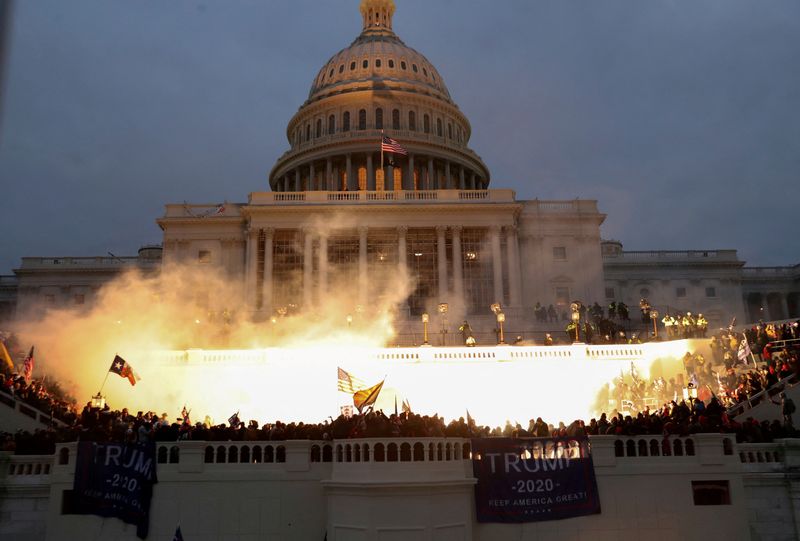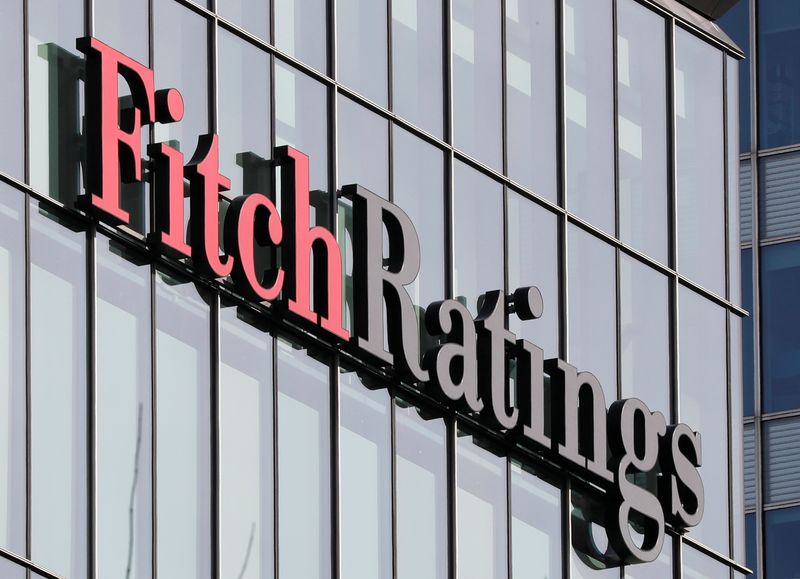By Davide Barbuscia
NEW YORK (Reuters) -Fitch downgraded the U.S. credit rating due to fiscal concerns, a deterioration in U.S governance, as well as political polarization reflected partly by the Jan. 6 insurrection, Richard Francis, a senior director at Fitch Ratings, told Reuters on Wednesday.
In a move that took investors by surprise, Fitch downgraded the United States to AA+ from AAA on Tuesday, citing fiscal deterioration over the next three years and repeated down-to-the-wire debt ceiling negotiations that threaten the government’s ability to pay its bills.
The agency based its decision in part on a perceived deterioration in U.S. governance, which it said gave less confidence in the government’s ability to address fiscal and debt issues, Francis told Reuters, in the first comments made after the decision was published.
That deterioration, as well as increased polarization in the country’s political climate, was visible in the Jan. 6 insurrection, which the agency highlighted in meetings with the Treasury ahead of the downgrade.
"It was something that we highlighted because it just is a reflection of the deterioration in governance, it's one of many," he said.
"You have the debt ceiling, you have Jan. 6. Clearly, if you look at polarization with both parties ... the Democrats have gone further left and Republicans further right, so the middle is kind of falling apart basically," Francis said, adding "we don't fault one party or the other for the fiscal situation."
Fitch, which is owned by media group Hearst, is the second major rating agency to strip the United States of its triple-A rating, after Standard & Poor’s did so in 2011.
S&P officials who made that seminal call more than a decade ago recently told Reuters they felt vindicated in their decision to cut the U.S. pristine rating, which they said at the time was due to heightened political polarization and insufficient steps to right the nation's fiscal outlook.
Fitch’s call on Tuesday drew criticism from U.S. Treasury Secretary Janet Yellen, who called it "arbitrary and based on outdated data."
White House economic adviser Jared Bernstein said on Wednesday on CNBC that the timing of Fitch's downgrade of the U.S. government's credit rating made no sense, calling the decision bizarre and arbitrary.
When asked about the timing of Fitch’s decision, Francis said the agency wanted to take some time after the recent debt deal to asses long-standing concerns around governance and the debt profile of the country.
“We wanted to kind of really take a deep look at these issues," Francis said.
Francis said the decision to cut the country's top rating, which was taken on Monday, resulted from a worsening of the country's debt profile - for instance, the ratio between the U.S. general government debt and gross domestic product - which took place over the course of several years.
Higher interest rates are also likely to make the country's debt burden heavier to sustain, he added.
"And I think, obviously, the debt ceiling debate itself highlights that brinkmanship and polarization that we've seen, and it's happening every two years now since 2011, more or less," said Francis.
The latest debt ceiling suspension, agreed in June, will last until early 2025, when another political debate around the borrowing limit is likely, he added.
For the United States to have its rating upgraded there would need to be a combination of factors, such as a stabilization of debt to GDP, and possibly a permanent suspension of the debt ceiling, said Francis.

He did not envisage further actions on the downside due to any potential government shutdown in the near future.
"That would just highlight the real political polarization and the kind of deterioration in governance that we've already noted ... to have a two-notch downgrade would be pretty harsh."
